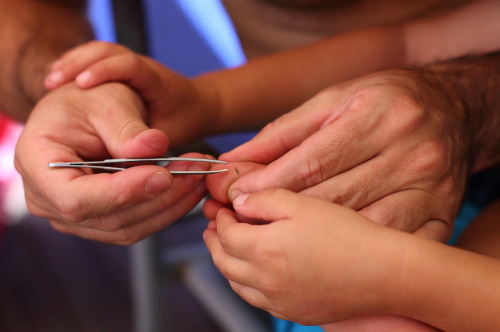Introduction
Every parent's headache is the idea of their newborn encountering a crucial emergency situation. Recognizing cardiopulmonary resuscitation (CPR) strategies especially customized for newborns can be the difference between life and death in such circumstances. Yet, numerous parents are uninformed of the special protocols involved in doing CPR on babies. This extensive guide intends to furnish every moms and dad with necessary understanding and abilities regarding CPR on babies, diving right into special strategies that can conserve lives.
CPR on Infants: Distinct Strategies Every Moms And Dad Must Know
Cardiopulmonary resuscitation (CPR) is a lifesaving strategy utilized in emergency situations when someone's breathing or heartbeat has quit. While the majority of people know with adult CPR, the methods vary significantly when it comes to babies. The delicate nature of a newborn calls for certain methods that differ from those utilized on older children and adults.
Understanding Baby Makeup and Physiology
Before delving right into CPR methods, it's crucial to recognize the composition and physiology of a newborn. Newborns have smaller sized lungs, vulnerable ribs, and a different circulatory system than grownups. Knowing these differences can aid parents execute CPR even more effectively.
The Importance of Airway Management
Newborns' respiratory https://anotepad.com/notes/jdtgfemg tracts are smaller sized and much more vulnerable to blockage; thus, respiratory tract administration is vital throughout an emergency. Moms and dads must learn exactly how to correctly clear a respiratory tract to ensure efficient breathing restoration.
Recognizing When to Carry out CPR
One of the first steps in any type of emergency is identifying when CPR is needed:

- Unresponsiveness: If your child isn't reacting or moving. No Breathing: If your infant isn't breathing generally or at all. Abnormal Skin Color: A bluish color around lips or face indicates lack of oxygen.
Initial Evaluation: The DRSABCD Approach
The DRSABCD technique is vital for analyzing any emergency circumstance:
D - Danger: Guarantee the environment is safe. R - Response: Check if the baby reacts by carefully trembling them. S - Send out for Help: Ask for emergency assistance if needed. A - Airway: Open the air passage by turning the head back gently. B - Breathing: Try to find indicators of breathing. C - Compression: If no breathing is spotted, start CPR. D - Defibrillation: Use an AED if readily available and qualified to do so.The Steps to Do Infant CPR
Performing CPR on a newborn differs considerably from adults as a result of their size and fragility:
1. Positioning
Lay the infant on their back on a firm surface.
2. Opening Airway
Gently tilt the head back slightly to open the airway while ensuring not to overextend it.
3. Check Breathing
Look for chest motions and listen for breath appears for about 10 seconds.
4. Chest Compressions
Using 2 fingers positioned simply listed below the nipple line, push down about 1/3 depth of their breast (concerning 1-1.5 inches) at a price of 100-120 compressions per minute.
5. Rescue Breaths
After every 30 compressions, provide 2 gentle rescue breaths:
- Seal your lips around their mouth and nose, Deliver each breath over one secondly while observing for chest surge, Repeat up until you see indicators of life or assistance arrives.
Common Mistakes During Baby CPR
Even sympathetic efforts might fail because of common mistakes:

- Applying too much stress throughout compressions can create injury. Failing to make certain appropriate head tilt may obstruct airflow. Not asking for assistance early enough can delay vital care.
Mental Prep work for Emergencies
It's all-natural to feel panic in emergencies; nonetheless, mental prep work plays a pivotal function in effectively executing first aid actions:
- Remain calmness; stressing hinders clear thinking. Practice mindfulness techniques before getting in parenthood.
FAQs About CPR on Newborns
What must I do if my newborn stops breathing?
If your newborn quits breathing, rapidly assess their responsiveness, phone call for assistance, check their respiratory tract, and commence CPR as comprehensive above.
How commonly must I take first aid courses?
It's advised that moms and dads rejuvenate their expertise every two years by taking first aid training courses or specific infant CPR training sessions.
Can I make use of an AED on an infant?
Generally speaking, AEDs are not recommended for infants under one year old unless specifically developed for such usage; always follow maker's instructions.
Where can I locate first aid training courses near me?
You can search online making use of terms like "first aid program near me" or examine neighborhood hospitals or recreation center that often offer these classes regularly.
How long does a first aid certification last?
Typically, many first aid accreditations stay valid for 3 years prior to needing renewal with correspondence course which include updated practices like DRSABCD protocols.
Is it necessary to learn psychological health first aid as well?
Absolutely! Mental health and wellness first aid outfits parents with abilities needed not just in physical emergency situations however likewise in identifying psychological distress among children and adolescents.
Conclusion
Understanding "CPR on Newborns: One-of-a-kind Methods Every Moms And Dad Ought To Know" isn't just regarding getting technological skills; it has to do with equipping yourself as a caregiver ready to encounter unexpected difficulties head-on. Whether through devoted training programs like those used by various companies or practicing hands-on methods with member of the family during workshops-- every initiative counts in the direction of constructing self-confidence in your capability to respond properly throughout emergencies involving your valuable newborns.

Incorporating this expertise right into your parenting toolkit might imply conserving lives when it matters most. So why wait? Sign up today for courses such as "first aid course," "cpr training," or specialized "baby first aid training course" choices offered nearby-- you never understand when you could need them!